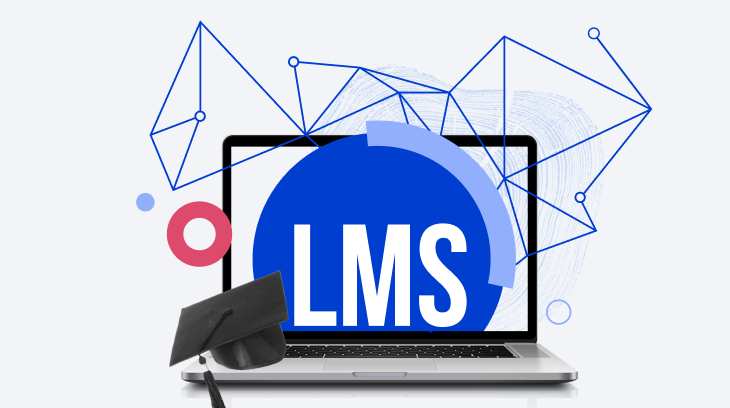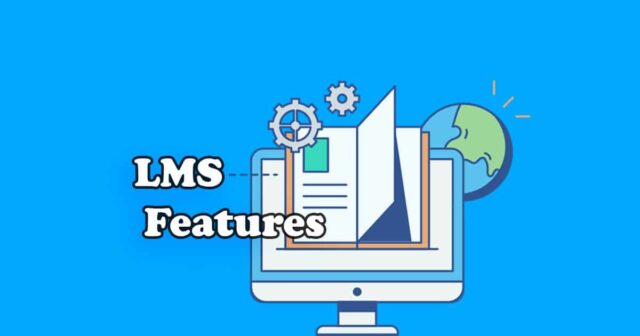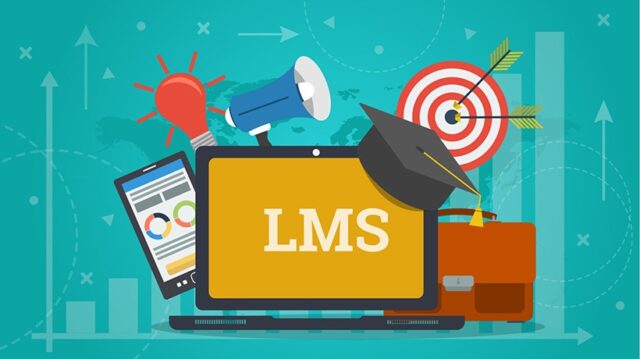
Even if you own a small business, you could still struggle with employee training and management. An LMS has emerged as one of the most crucial tools available, particularly in the case of employee onboarding and competency development as corporate competition continues to increase. The best LMS for small businesses meets their needs and, not just those of huge enterprises. There are various sorts of LMS platforms. The top small business LMSs not only save you time but can also provide you with a solid ROI.
Features To Consider When Choosing a New LMS

Let’s examine the main criteria you should consider when choosing an LMS for your small business.
- Figure out the current LMSs drawbacks: If you’re not satisfied with your present LMS, you need to know what its shortcomings are. Knowing why you are switching to a new LMS will make the methodical search process swift and ensure you are satisfied with your decision. To make learning, teaching, and event management enjoyable for the users, always make sure you can quickly and easily design a flexible and intuitive experience for them. When looking for the ideal LMS to replace the one your business is already using, bear that in mind.
- Reviews: Often, customers who use a product leave their feedback on different platforms online. It’s best to go through these reviews before you make a purchase as they give you a fair idea of the reality of the product.
These reviews may talk about the post-purchase services by the vendor, allowing you to make an informed decision. Others may discuss if a particular LMS vendor was a good choice for their business type or size. Trainual reviews, for example, suggest that this cloud-based application assists SME leaders to systemize and scale their businesses. Thus, it is always better to gauge the experience of other customers before you finalize your choice of tool.
- Budget: The cost of your online training is one of the critical parts that influences your decision of whether to take the course or not. As an alternative to a package membership, some LMSs might charge by the user, viz. if your future training requirements change, the cost might vary accordingly.
LMS packages may also provide a cost based on the features. This option can save you money by avoiding subscribing to features you might not need right away. A needs-based evaluation will facilitate determining the right amount to spend on costs.

- Collaboration: Hybrid workplaces are the new normal. And employees could prefer collaborative learning over self-directed learning or vice versa. Hence, the best of both worlds is an LMS that provides blended learning over the cloud. So, choose an LMS that offers both. This way, employees can enjoy the benefits of both styles of learning, maximizing their potential and growth within the company. A blended learning approach allows for flexibility and personalized learning experiences, making it easier for employees to absorb and retain information. A cloud-based LMS also provides accessibility to employees anywhere and at any time, further promoting collaboration and teamwork. By opting for a blended learning approach through a cloud-based LMS, companies can improve their employees’ skills and increase their overall productivity.
- Customizing options: You need to be able to modify your LMS for it to mirror the culture of your organization if you want it to function for your small business. Although not all LMSs allow it, most let you incorporate your company name and logo throughout the system. So, if this is a requirement for you, ensure that the LMS you are switching to provides that.
- Provides technical support: Technical issues or bugs in any software are inevitable. So, to avoid obstructing an employee’s learning, you should contact support personnel immediately. Examine the support and customer service hours provided by the LMS providers you are considering. Check to see if there is a separate charge for support services.
- Tracks and reports progress: The ability to swiftly generate training reports and monitor learner progress is a convenient feature that any LMS should provide. A decent LMS can automate many of your learning-related tasks, whether it be handing out certificates of completion or simply notifying you when courses are over. This feature helps managers and trainers track the progress of their employees and ensure that they are on track to meet their training goals. With real-time reporting, managers can easily identify areas where employees need further training, helping them to continuously improve their skills and stay ahead of the curve. Additionally, tracking and reporting progress also helps to identify high-performing employees, who can then be rewarded or recognized for their efforts. Having an LMS with this capability can help companies streamline their training processes and make the most of their investment in employee development.
- User limitations: Even if a small company’s learning requirements may not be all that different from those of a large corporation, it might be challenging to locate LMS software at an affordable price for a small number of learners. Even at the lowest price, small organizations need to pay for additional licenses they would not be using since many LMS platforms base their feature pricing on a high minimum number of learners. To choose the services your small business needs, look for an LMS that offers a sizable free trial.
- Future demand: Select an LMS that will last a long period for the company. Check if the creators update it regularly. Is that platform popular enough in your sector? Has it updated recent developments like gamification and social learning for business learning?
Some well-known LMS systems may have a large global user base, but they may also have unadvertised costs that surface after implementation. So, consider your future requirements and pick an LMS that can grow with your business.
Conclusion

Making the best LMS choice for your small business is a crucial decision. By providing answers to queries like your budget, or your end goal alignment with the application, you may better budget your funds, choose the ideal LMS provider, and give your staff members an excellent learning environment.









